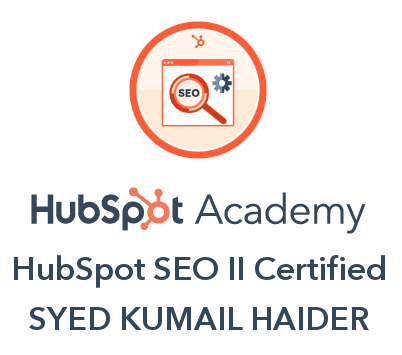Data-Driven Marketing: Leveraging Big Data for Success in 2024
In today’s digital age, data has become a crucial asset for businesses looking to gain a competitive edge. Data-driven marketing, powered by big data analytics, has revolutionized the way companies reach and engage with their target audiences.
Understanding Data-Driven Marketing
Data-driven marketing is a strategy that utilizes customer information and insights to make informed decisions about marketing campaigns, product development, and overall business strategies. By analysing large volumes of customer data, businesses can better understand their audience’s needs and preferences, personalize their marketing efforts, and drive more relevant and effective campaigns.
Leveraging Big Data for Success
In 2024, the amount of data generated by consumers is expected to continue to grow exponentially. Businesses that can effectively leverage this wealth of information will be well-positioned to succeed in the competitive market landscape. Here are some key ways companies can leverage big data for marketing success in 2024:
1. Personalization at Scale
Personalization is simply the act of tailoring communication or experiences to meet the specific needs and preferences of an individual. In the context of marketing, personalization allows companies to connect with customers on a deeper level, building trust and loyalty. Personalization can take many forms, including:
· Personalized product recommendations
· Customized messaging based on customer behavior
· Dynamic content that changes based on customer preferences
· Targeted offers and promotions
With personalization, businesses can create a more engaging, relevant, and effective customer experience. According to a survey conducted by Epsilon, 80% of consumers are more likely to make a purchase when a brand provides a personalized experience.
Challenges with Personalization at Scale
While personalization can deliver important benefits, achieving personalization at scale presents significant challenges. As the size of a customer base grows, it becomes increasingly difficult to provide customized experiences to each individual. Some of the key challenges facing companies trying to achieve personalization at scale include:
· Collecting and analyzing data quickly: Personalization at scale requires real-time data collection and analysis. Companies must process large volumes of data quickly to deliver customized experiences.
· Integration of data sources: Data may be stored in different locations, making it challenging to integrate and analyze.
· Generating actionable insights: Analyzing data is just part of the process. Companies must also generate actionable insights from the data to inform marketing strategies.
· Ensuring data privacy and security: Personalization requires access to customer data. Companies must balance the desire for personalization with the need for data privacy and security.
1. Predictive Analytics
Predictive analytics is the practice of using past data patterns to forecast future behaviors and trends. It involves using statistical algorithms and machine learning techniques to analyze large volumes of data and identify patterns and trends. By leveraging predictive analytics, businesses gain insights into what might happen in the future, allowing them to make data-driven decisions and plan marketing strategies accordingly.
Benefits of Predictive Analytics
Predictive analytics has numerous benefits for businesses, including:
· Targeted Marketing
Predictive analytics can help businesses identify customers’ behavior and preferences, allowing them to target their marketing efforts more effectively. This results in personalized and highly relevant marketing campaigns that are more likely to engage customers and drive conversions.
· Optimize Pricing Strategies
Pricing is a critical factor in consumer behavior. With predictive analytics, businesses can analyze data on purchasing patterns, demand, and market trends to optimize pricing strategies. This allows businesses to price products competitively, making them more attractive to customers while maintaining profitability.
· Identify New Market Opportunities
Predictive analytics can help businesses identify new market opportunities by analyzing customer behavior and preferences. This provides insights into untapped segments and potential new product offerings.
· Improved Efficiency
Predictive analytics can automate routine tasks and provide insights in real-time, reducing the time and effort it takes to analyze data manually. This leads to increased efficiency and a more streamlined decision-making process.
1. Omnichannel Marketing
Omnichannel marketing is a strategy that focuses on creating a cohesive and seamless customer experience across multiple channels and touchpoints. It allows businesses to engage with customers at every stage of their journey, from initial awareness to post-purchase support. By using an omnichannel approach, businesses can create an integrated and consistent customer experience, where customers feel understood and valued.
Benefits of Omnichannel Marketing
Omnichannel marketing has numerous benefits for businesses, including:
· Improved Customer Engagement
By offering a consistent and personalized experience across all touchpoints, businesses can improve customer engagement and build lasting relationships. This leads to increased loyalty and higher customer retention rates.
· Greater Customer Satisfaction
Omnichannel marketing allows businesses to meet customers where they are, whether it’s on social media, online, or in-person. By providing a seamless and convenient experience, businesses can improve customer satisfaction and create a positive brand image.
· Competitive Advantage
By implementing an omnichannel marketing strategy, businesses can gain a competitive advantage by offering a superior customer experience. This allows them to differentiate themselves from competitors and stay ahead of the curve.
1. Al powered marketing
AI-powered marketing refers to the use of artificial intelligence technologies to enhance marketing efforts and improve customer engagement. By analyzing vast amounts of data and identifying patterns and trends, AI enables businesses to deliver highly personalized and relevant marketing campaigns to their target audience. From predictive analytics to chatbots and recommendation engines, AI-powered marketing solutions can automate and optimize various aspects of the marketing process, leading to improved efficiency and effectiveness.
Benefits of AI-Powered Marketing
AI-powered marketing offers several key benefits for businesses, including:
· Personalization
One of the most significant advantages of AI-powered marketing is the ability to deliver personalized experiences to customers. By analyzing customer behavior and preferences, AI can tailor marketing messages, product recommendations, and content to each individual, increasing the likelihood of engagement and conversion.
· Automation
AI technologies can automate repetitive and time-consuming marketing tasks, such as data analysis, campaign optimization, and customer segmentation. This allows marketers to focus on higher-level strategic activities while AI handles the more mundane aspects of marketing operations.
· Improved Decision-Making
By providing real-time insights and predictive analytics, AI empowers businesses to make more informed and data-driven decisions. Marketers can leverage AI-generated insights to identify opportunities, optimize campaigns, and allocate resources more effectively, leading to better overall performance.
· Enhanced Customer Experience
AI-powered marketing solutions, such as chatbots and virtual assistants, can provide round-the-clock customer support and personalized interactions. This enhances the customer experience by offering timely assistance, resolving queries quickly, and delivering seamless communication across various channels.
Data-Driven Marketing: Leveraging Big Data for Success in 2024






